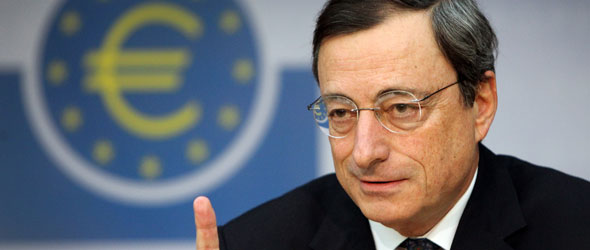The Club Med President Shows His Colours
Despite the stern, father-like posturing of the new Italian president of the European Central Bank, Mario Draghi, it’s clear that he is going to be much more amenable to pressure from governments of the 17 Eurozone member-nations to implement loose-money policies than his predecessor.
One of his first actions has been to offer unlimited three-year loans to European banks, with no specific limits on what they do with the money. This gives them huge capacity to borrow from the ECB at 1 per cent and use the money to buy government bonds now yielding 6 per cent or more.
At a single stroke, Draghi has collapsed the dangerous stresses that were building up in the European financial system because of lenders’ reluctance to provide short-term credits to banks.
What is not admitted, however, is that the new easy-money policy is clearly a manoeuvre to circumvent the ban in the ECB’s constitution on lending money to Eurozone governments, who were facing a huge problem over the next three months refinancing their maturing bonds – some $600 billion worth.
Seeing the opportunity to do this, as well as shield themselves against the risks of panicky flights by their depositors, the banks have rushed to take advantage of the ECB’s new facility, immediately signing up for the equivalent of $645 billion worth of the loans.
GavKal says banks “will now be able to theoretically acquire unlimited government bonds portfolios without exposing themselves to rollover or maturity risks…
“This Ponzi scheme could potentially result in an even bigger money-printing operation than anything the US, British and Swiss central banks have done on their own accounts.”
CopyRight – OnTarget 2012 by Martin Spring






















